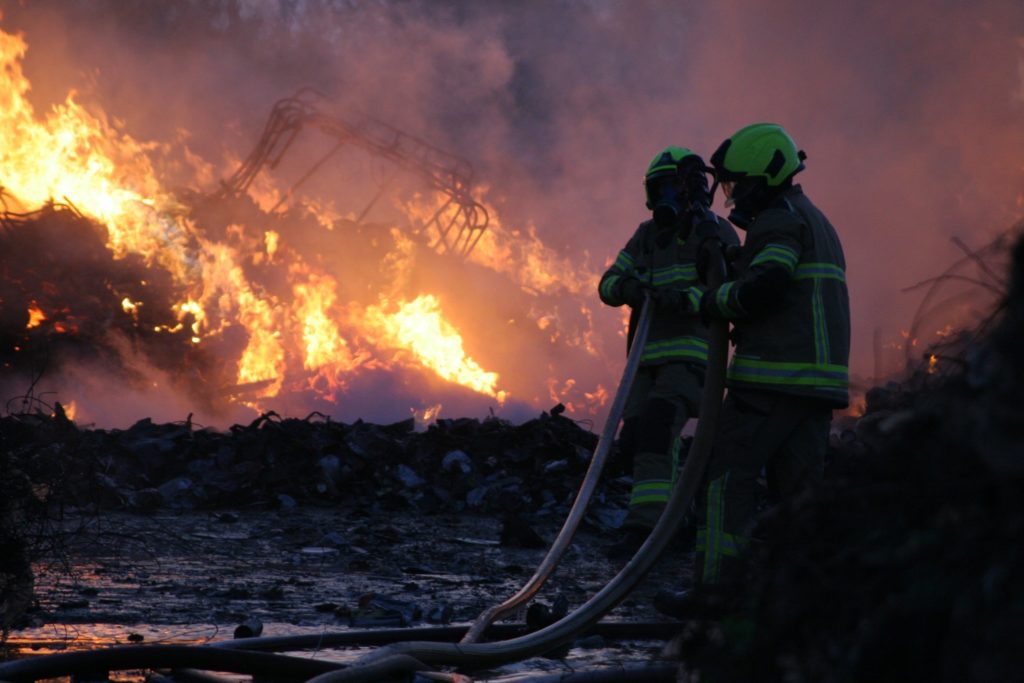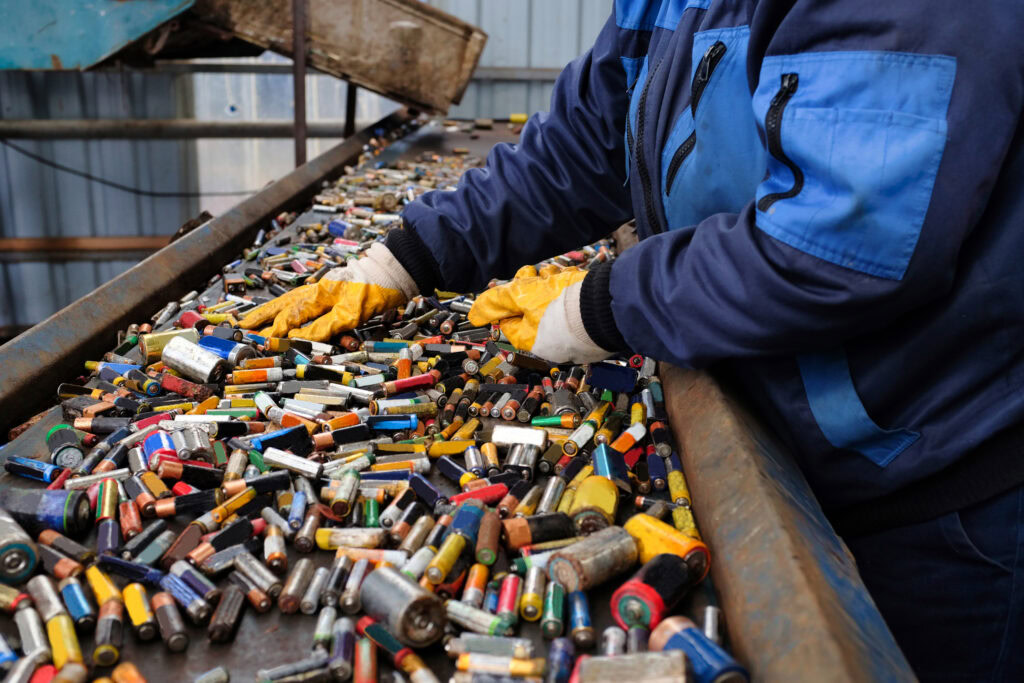Research published by private waste sector trade body the Environmental Services Association (ESA) and consultancy Eunomia in 2021 suggested lithium-ion batteries cause 201 waste fires every year.
Yesterday (1 December), Material Focus, the not-for-profit organisation funded by the waste electrical and electronic equipment (WEEE) compliance fee, published the results of a survey of local authorities on fires.
Material Focus says the findings indicate that fires caused by batteries are “potentially a far bigger issue than previously reported” by the ESA and Eunomia.
The results suggest batteries that have not been removed from unwanted electricals cause more than 700 fires annually in refuse collection vehicles (RCVs) and at household waste recycling centres (HWRCs), Material Focus says, while nearly 90% of the 60 local authorities surveyed said fires caused by batteries are “an increasing problem”.
Material Focus published the findings to coincide with the launch of a campaign to raise awareness of how householders can recycle their batteries and electricals.
The Stop Battery Fires Campaign, in which more than 70 local authorities are participating, instructs householders not to dispose of batteries or electricals in recycling or residual waste bins, as they could start fires in bin lorries on their streets.
Instead, the campaign says, householders should remove batteries from electricals and recycle each separately.
‘Take action’
Scott Butler, Material Focus’s executive director, said: “Having listened to the numerous stories of flames engulfing waste and recycling trucks as they drive down residential streets, it’s important that we all take action now to keep our streets, householders, waste and local authority staff and firefighters safe.”

Mark Andrews, the National Fire Chief’s Council waste fires lead, urged people to recycle electricals and batteries and not to dispose of them with general household waste.
“People are often surprised to hear that batteries can cause fires in both bin lorries and waste plants, but they do and as we use and dispose of more electronic devices these incidents are not rare,” Mr Andrews said. “These fires can be challenging for fire services to deal with, have a significant impact on local communities and present a real risk to staff working on lorries and waste plants. Everyone can do their bit and prevent fires by ensuring they dispose of electrical items correctly.”
A spokesperson for the London Fire Brigade said they were “especially concerned” about fires involving lithium-ion batteries, in which they have seen an increase, and would always encourage people to discard of batteries and electrical items “safely and responsibly” by using recycling schemes or at approved HWRCs.
Methodology
For their data, Material Focus sent a survey through the Local Authority Recycling Advisory Committee (LARAC) and the Nation Association of Waste Disposal Officers (NAWDO) to local authorities across the UK. The survey asked if the councils had experienced any fires caused by crushed or damaged batteries in the waste stream.
Sixty local authorities responded, Material Focus says, stating they had suffered 107 fires. This equates to an average of 1.78 fires per local authority area, which averaged across the 398 local authorities in the UK is 710 fires.
The research also found that up to 45% of householders are unaware of the fire risk if they do not safely dispose of batteries, while 40% are unaware of any information regarding how they should recycle their batteries.
Campaigns
Material Focus is not the only organisation to launch a public campaign aimed at tackling battery fires in recent times.

In July, compliance scheme REPIC launched an initiative aimed at reducing the risk of fires at HWRCs and treatment plants (see letsrecycle.com story). REPIC’s campaign sees battery collection drums and safety message posters installed at almost 400 local authority HWRCs with which the compliance scheme is partners.
In October, the ESA relaunched the national Take Charge campaign with the aim of reversing the “growing” trend of battery fires (see letsrecycle.com story).
Altens
Elsewhere, waste management company Suez recently published footage of the “devastating” fire at their Altens materials recycling facility (MRF) in Aberdeen (see below).
More than 100 firefighters tackled the fire, which broke out in a large area of mixed waste at the £27 million MRF in July (see letsrecycle.com story).
In a statement published yesterday, Suez said it believed it was “highly probable” that the fire was caused by a battery or battery-operated device that a resident put into their recycling bin.
Colin Forshaw, Suez’s production operations manager, said: “We would like to take this opportunity to thank the Scottish Fire and Rescue Service for their quick response on the day of the fire at our Altens recycling centre.
“To see such an important facility that provided an essential service for Aberdeen residents be destroyed by something as avoidable as a battery being put in a bin is devastating.”











Subscribe for free